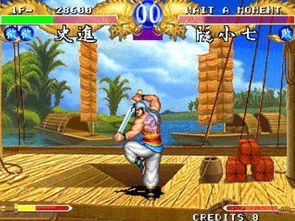Introduction to Tug-of-War: A Team Sport with Rich History

Tug-of-war, a traditional team sport that has been captivating audiences for centuries, is a game of strength, strategy, and teamwork. Originating in various cultures, this sport has evolved into a popular pastime and competitive event worldwide. In this article, we will delve into the history, rules, and significance of tug-of-war, as well as explore its impact on individuals and communities.
History of Tug-of-War

The origins of tug-of-war can be traced back to ancient civilizations, with evidence of similar games being played in Greece, Egypt, and China. However, it was in medieval Europe that the sport gained widespread popularity. Tug-of-war was often a part of festivals and celebrations, and it became a symbol of strength and unity. Over time, the sport has been adapted and refined, leading to the modern version we see today.
Rules and Gameplay

In a standard tug-of-war game, two teams of equal size, typically consisting of six to ten players, face each other. Each team holds the ends of a strong rope, and the objective is to pull the opposing team across a designated line or to make them lose their balance. The rope is anchored at both ends, and a neutral official, known as the judge, oversees the game. The game is won by the team that successfully pulls the other team across the line or causes them to fall.
Physical and Mental Challenges

Tug-of-war is not just a game of brute strength; it requires a combination of physical fitness, strategy, and mental fortitude. Players must be able to exert a significant amount of force while maintaining balance and coordination. The mental aspect of the game is crucial, as players must stay focused, communicate effectively, and remain determined throughout the intense competition.
Teamwork and Unity

One of the most significant aspects of tug-of-war is its emphasis on teamwork and unity. The sport encourages players to work together, support one another, and overcome adversity. The collective effort of the team is what ultimately determines success, making tug-of-war a powerful symbol of camaraderie and solidarity.
Cultural Significance

Tug-of-war holds a special place in many cultures around the world. It is often used as a way to celebrate national holidays, promote cultural pride, and foster a sense of community. In some countries, the sport is even considered a rite of passage, with young people participating in tug-of-war competitions to demonstrate their strength and maturity.
Health Benefits

Participating in tug-of-war offers numerous health benefits. The physical exertion involved in the sport helps improve cardiovascular fitness, muscle strength, and endurance. Additionally, the mental challenges of the game can help reduce stress and anxiety, while promoting a sense of accomplishment and well-being.
Conclusion

Tug-of-war is a timeless sport that continues to captivate audiences and bring people together. Its rich history, emphasis on teamwork, and physical and mental challenges make it a unique and rewarding experience. Whether played for fun or as part of a competitive event, tug-of-war is a sport that celebrates the power of unity and the importance of working together towards a common goal.













































